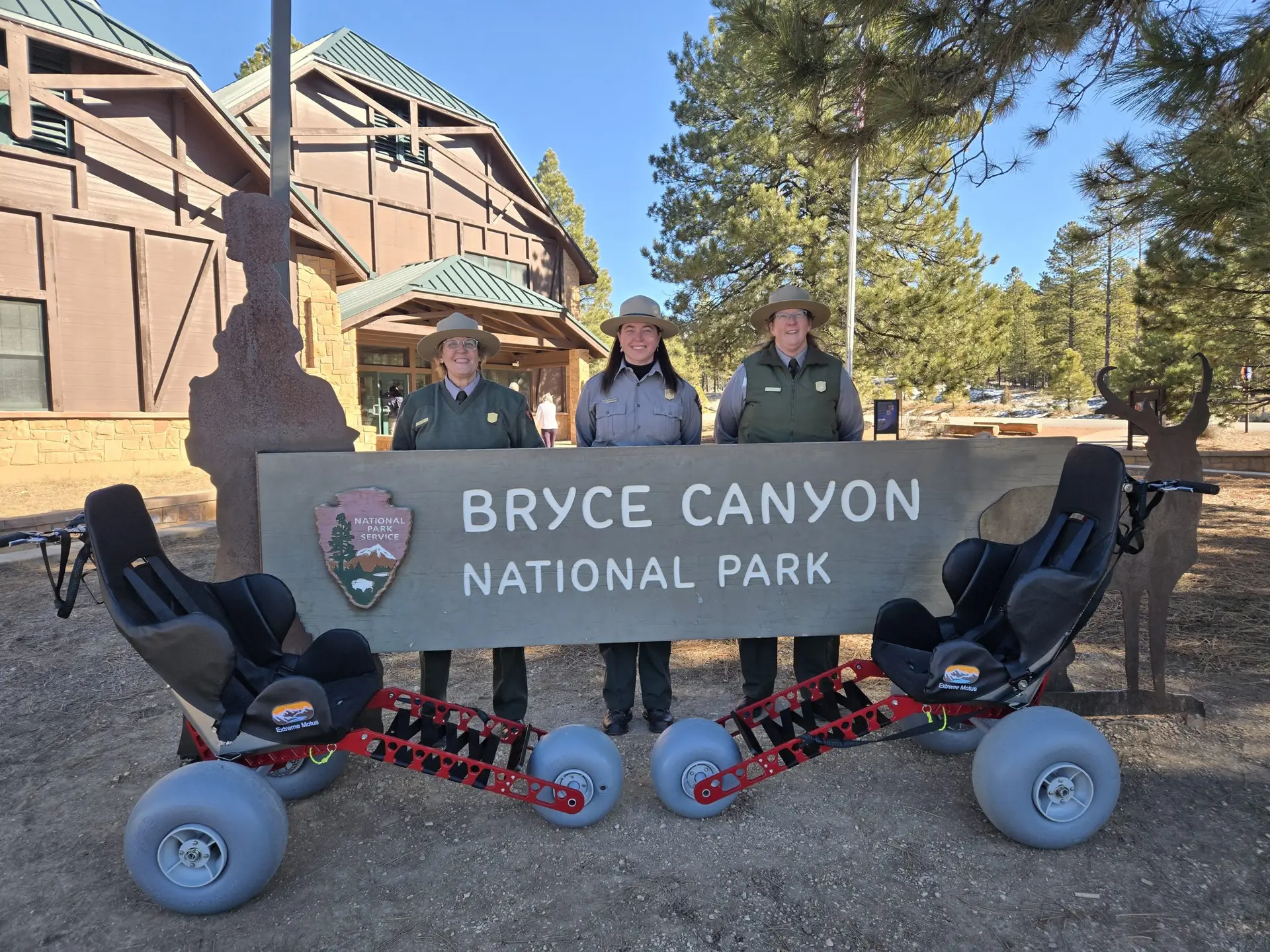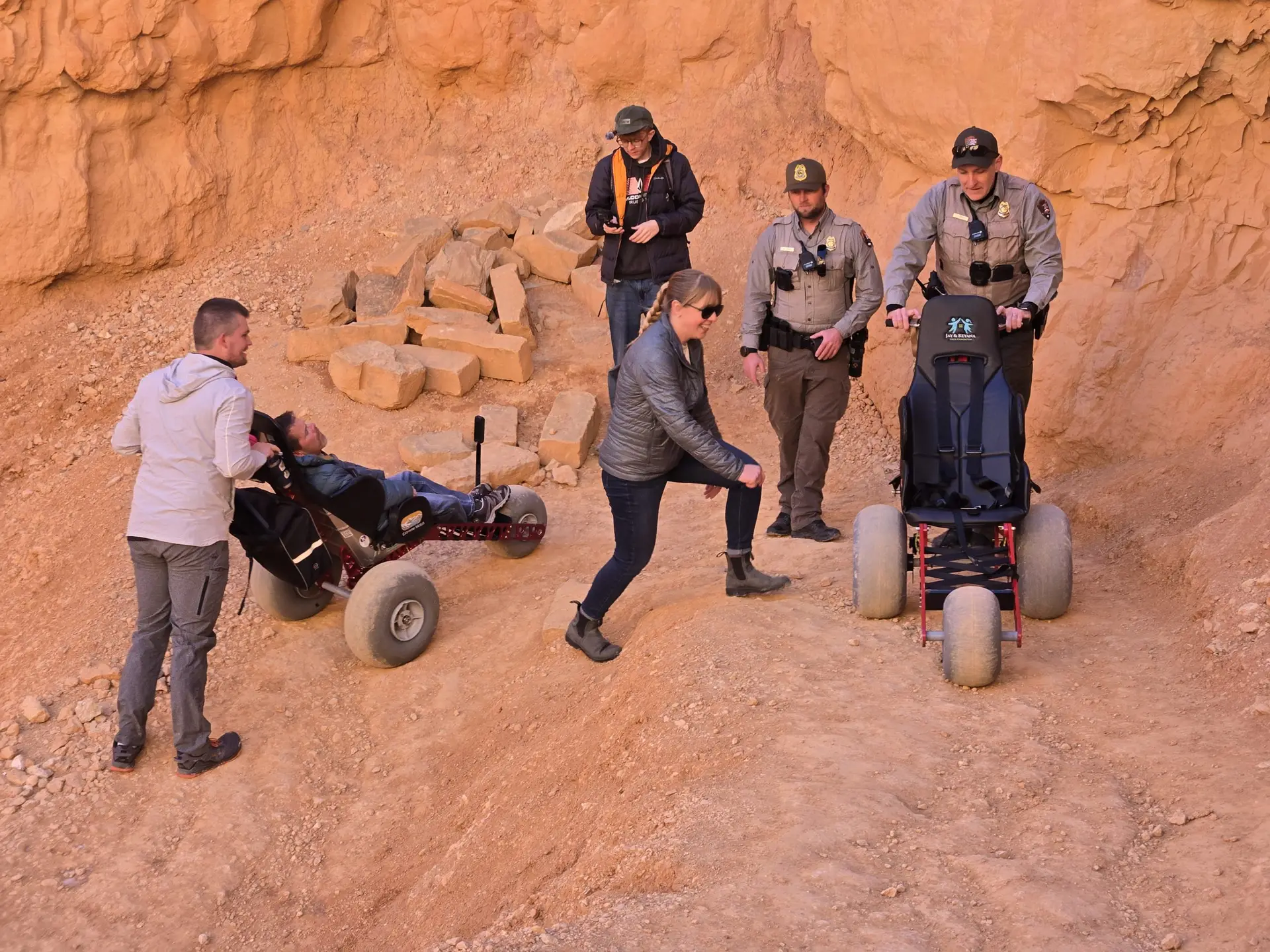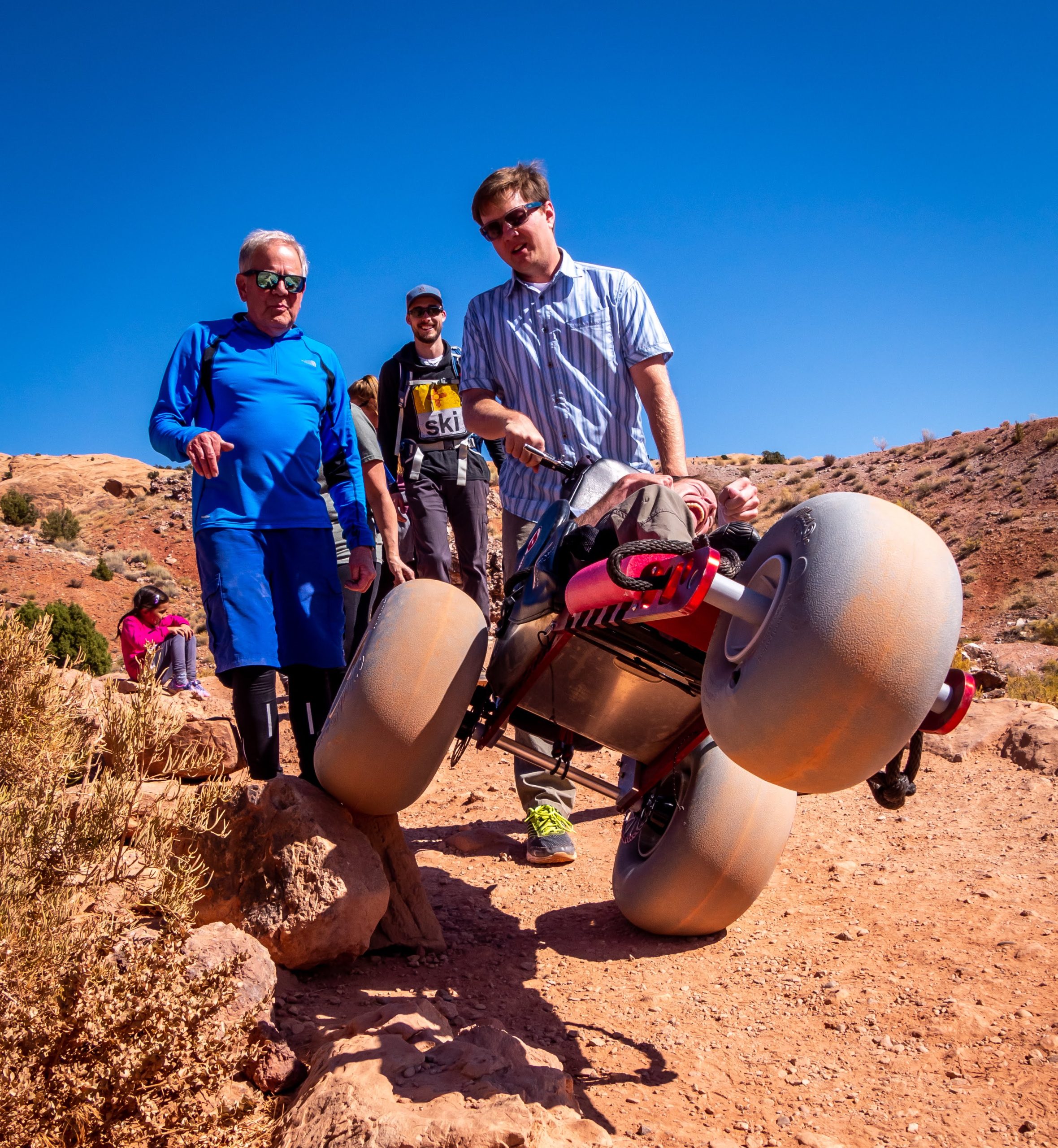Fostering Friendships Through Inclusive Outdoor Recreation
Sam and I met Lisa, Founder of MERGE at the NRPA show in Atlanta, Georgia. When we learned that the mission of MERGE is to build more inclusive communities that foster friendships and meaningful participation in recreation spaces, we invited her to write a guest post for the Extreme Motus Blog.
What Sam and I do on social media has 2 goals. We want to educate people about the Extreme Motus All-Terrain Wheelchair, where it can go, what it can do, and how it can change a family’s life. But we also want to show that you can be friends with people who are different and that you should treat everyone the same even if they look or sound different.
Because we love spending time outdoors and want to promote interabled friendships we asked Lisa to create a guest blog so our readers could learn more about her important work.
Guest post by Lisa Drennan
When we focus on the strengths and contributions that adults with physical disabilities bring to their communities, we open the door to fostering meaningful friendships. Outdoor recreation spaces, from adaptive hiking trails to accessible kayaking programs, offer a unique opportunity for connection and camaraderie to flourish.
In this blog, we’ll explore:
- Why friendships are essential for adults with physical disabilities
- The challenges of loneliness and isolation
- How outdoor recreation can create pathways for connection
- Tips for fostering authentic friendships
Loneliness and Isolation
For adults with physical disabilities, barriers to accessibility and social stigma often limit opportunities to connect with others. Research shows that individuals with disabilities are more likely to experience loneliness due to fewer friendships, reduced social networks, and less access to recreational spaces.
Building meaningful friendships is key to overcoming these challenges. Friends provide not only companionship but also a sense of belonging, mutual support, and emotional well-being—essentials for a thriving, inclusive community.
Why Friendships Matter
Friendships offer countless benefits, including:
- Improved Mental and Physical Health: Companionship reduces stress, fosters happiness, and promotes a sense of connection.
- Reciprocity: Meaningful friendships allow individuals to both give and receive support, creating mutual respect and shared purpose.
- Increased Social Inclusion: Friendships help break down stereotypes, fostering understanding and acceptance.
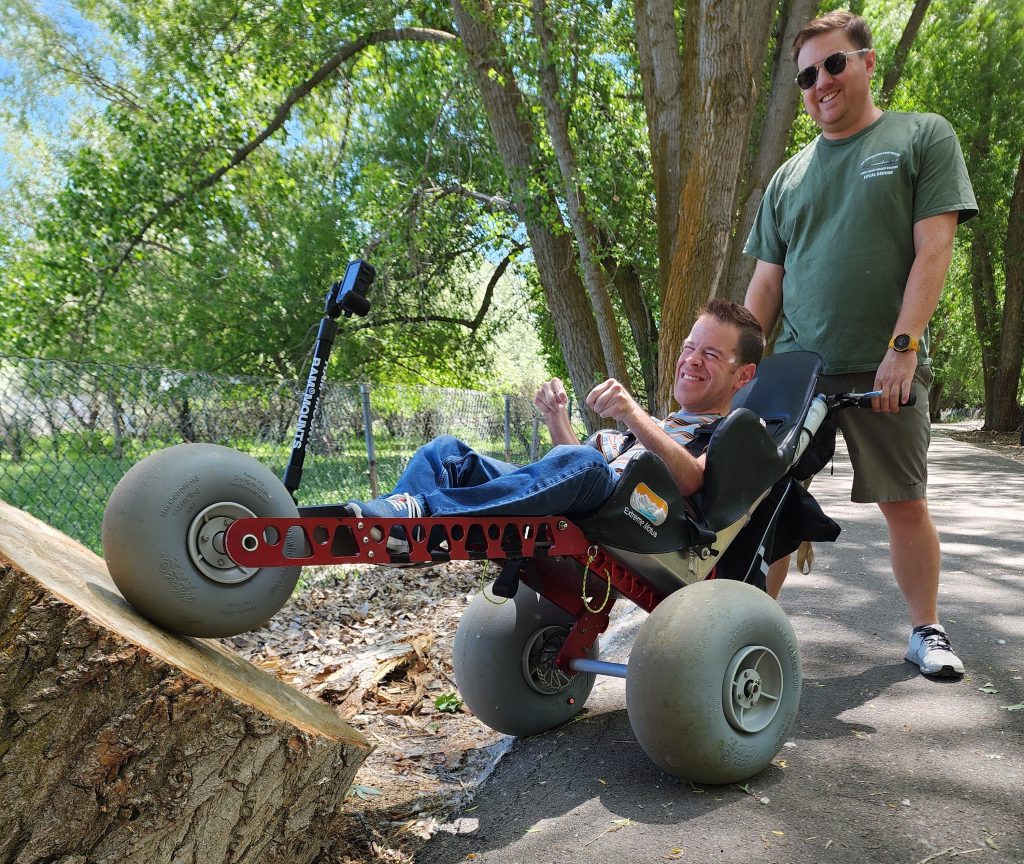
Why Outdoor Recreation?
Outdoor recreation provides the perfect setting for friendships to form. Activities like hiking, adaptive cycling, fishing, or even enjoying a picnic foster shared experiences that bring people together. Unlike work or structured environments, recreation emphasizes fun, joy, and collaboration, creating a natural platform for connection.
By designing accessible outdoor spaces—incorporating adaptive equipment, universally designed trails, and inclusive programming we can create environments where individuals with and without disabilities can bond over their shared love of nature and activity.
Tips for Initiating Friendships
For individuals without disabilities, here are some practical ways to foster authentic friendships in outdoor recreation settings:
- Start with Shared Interests: Invite someone with a disability to join you in a recreational activity. Shared passions are the foundation of connection.
- Respect Independence: Offer help when needed, but avoid making assumptions about someone’s abilities. Ask if and how you can assist.
- Celebrate Commonalities: Focus on what unites you—shared hobbies, favorite trails, or mutual goals.
- Be Open and Curious: Engage in conversations that show genuine interest in the other person’s experiences and perspectives.
- Create Opportunities for Connection: Encourage inclusive group outings or activities to build relationships within a broader community.
Outdoor recreation isn’t just about access; it’s about creating spaces where friendships and connections can thrive. By fostering inclusion in these settings, we take a significant step toward building a more welcoming and supportive community for all. What steps will you take today to create an inclusive outdoor space? Share your ideas and experiences in the comments!
Lisa Drennan is the founder of MERGE Diverse Abilities Inclusion Consulting, specializing in staff training and expert consultation to recreation, camp, sport and community organizations to promote meaningful inclusion for individuals with diverse abilities. She is the primary author of Building Friendships between people with and people without disabilities, made possible by The Arc Massachusetts.
Lisadrennan@mergeconsulting.org | www.mergeconsulting.org | 781-724-1918
Every year, more families discover the freedom these chairs create—this Black Friday, demand is already building fast. By joining the early-access list, you secure your chance to order before the sale goes public on November 28, 2025.
Since 2019, Sam and Ryan have been demonstrating that nature is wheelchair accessible with the Extreme Motus All Terrain Wheelchair. From National Parks to Skateparks, their adventures prove that a manual off-road wheelchair can offer laughter and joy while navigating diverse terrains.
Join us as we continue to share these inspiring journeys.
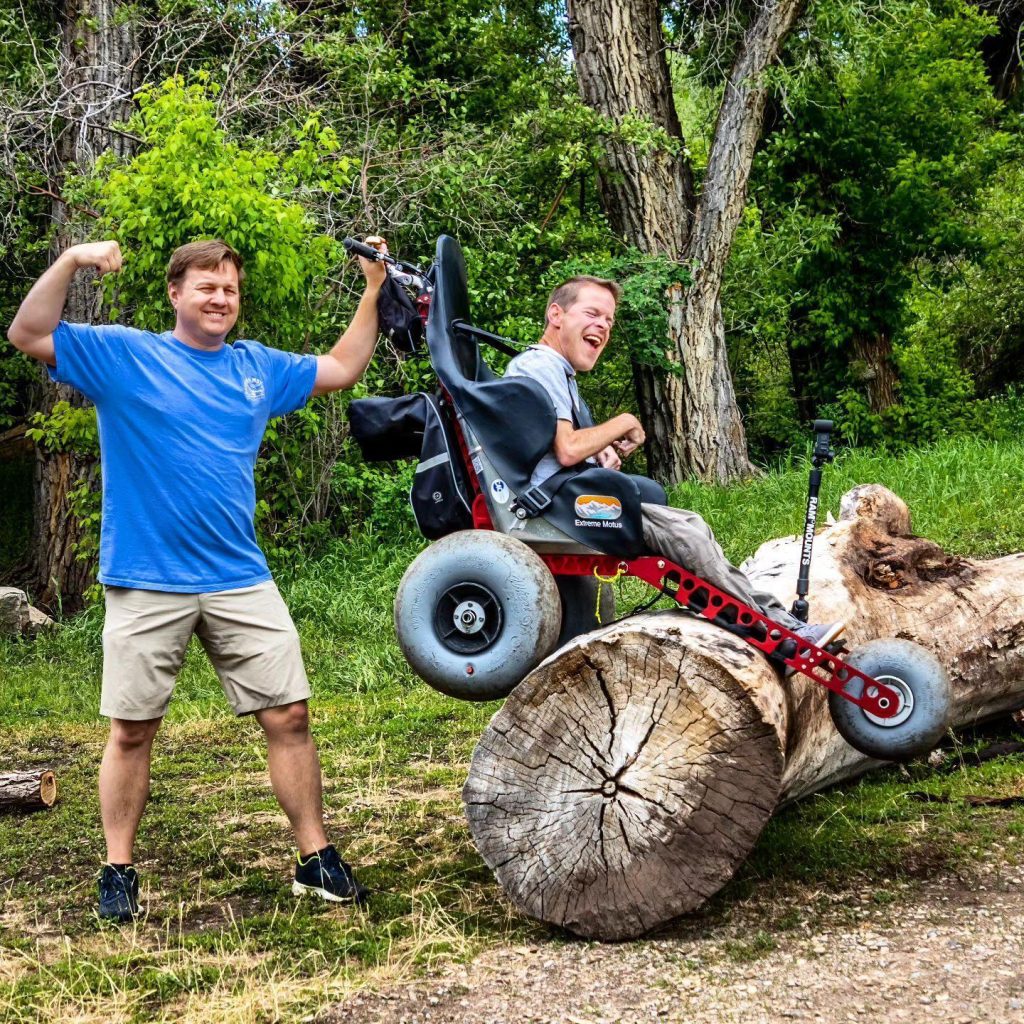
Light, comfortable, and compact, the Extreme Motus glides over sand, rocks, grass, gravel, and even floats in water.
It’s more than a outdoor wheelchair; it’s your ticket to freedom. Embrace the outdoors with confidence, knowing our off-road wheelchair is engineered for durability and ease of use.
Be the first to hear about new gear, upcoming adventures, and exclusive offers. As a welcome gift, enjoy $10 off your first Motus T-Shirt when you subscribe.
By subscribing you agree to receive marketing communications from Extreme Motus, including product updates, promotions, and special offers. I understand I can unsubscribe at any time.

